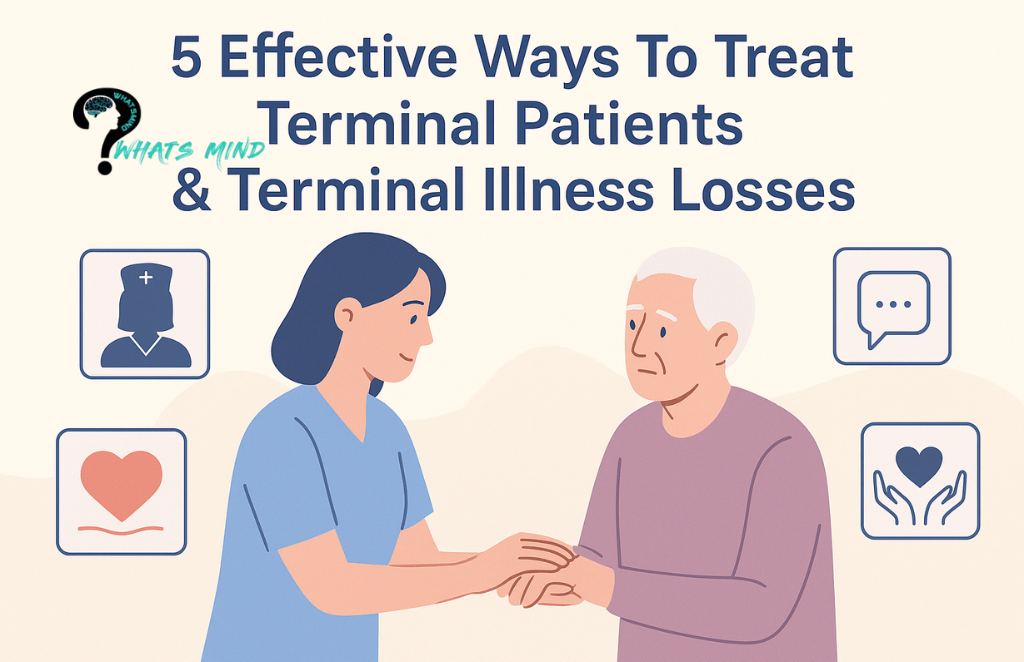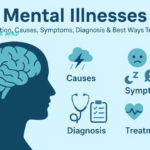There’s nothing that can be done when you are already on the deathbed. Terminal patients are already on the verge of dying and have a short life expectancy, therefore they have been treated with supportive care regimes instead of the medicinal treatment plan because they don’t respond well to curative medicine.
If medicines don’t work, then a palliative care is recommended which includes preparing early, giving appropriate aid to the patients, making them utmost comfortable, and practising Respite Care so that the patients, caregivers, and family don’t get overwhelmed and exhausted.
Getting hospice care and services from old-age nursing homes seems to be a good idea along with family support.
Communication gaps worsen this critical situation and require a team effort therefore everything must be discussed in detail beforehand to avoid this barrier.
In this guide, we will delve deeper into the effective methods that help treat terminal patients, is the terminal illness curable, and the losses patients have to endure.
What Is Terminal Illness & What Are Losses of Terminal Patients?
Before we unravel who are terminal patients, we need to understand what is a terminal illness. It’s a disease with no cure where death is inevitable but how long the patient survives is entirely close to a patient’s potential.
A few of the terminal illnesses include cancer, and AIDS as these can progress and ultimately lead to deaths.

It can’t be clearly diagnosed and the prognosis is negative, though.
- The Losses terminal patients suffer from include actual loss where they have to endure the loss of a person, a beloved object that can’t be seen, or touched, and even death, including a relationship or a limb.
- Another kind of loss can be felt and cause extreme distress including lost self-esteem.
Effective Ways To Treat Terminal Patients
Treating terminal patients might be tough as even approaching the matter is difficult due to its sensitive nature and there’s usually a gap in communication between patients and doctors which affects this palliative care treatment.
Prepare Ahead Of Time
There’s nothing wiser than preparing early, families, physicians, healthcare staff and, even patients need to be on their toes early. Patients must be eased into palliative care and what they can expect through it and it’s possible only via clear communication among all the associated parties.
The terminal patients along with their families should be updated about the ongoing treatment updates and what palliative care must be implemented.
The impending warning allows the families to find hospice care and palliative care required as it is important for the patients to have clock intensive care.
Getting Appropriate Aid
Terminal patients suffer from different illnesses that demand different medical treatments. Discussing the best care required for patients and how to arrange hospice care timely before they are taken home helps everyone to adapt to the critical situation at hand.
But again hospice care must be on duty 24/7, highly qualified and reliable, and if provided at home become the primary care the the terminally ill patients.

Consider the logistics beforehand including the bed, a commode, medical supplies, emergency transportation, and a wheelchair.
Make Your Terminal Patients Comfortable
Comfort comes first whenever you are treating a patient. The Terminal patients might feel isolated even whilst being surrounded by plenty of health professionals and their loved ones.
Make sure you are easing their anxiety by involving them in small conversations, listening to them, pacifying them about their fears, and letting them remember their happy memories.
Additionally, try to be tolerant, calm, and accommodating with your patients to give them enough space so they don’t feel overwhelmed.
Be a little more patient as you will need to repeat yourself multiple times due to the patient’s deteriorating cognitive health.
The place where the terminal patients rest matters a lot as you must place wet bags under the bed and must be changed clockwise to avoid getting it soiled.

Keep a humidifier and air purifier near the patients to let them breathe fresh air and give them their favourite food by keeping them hydrated.
Sometimes the patients might try to put distance, in that case, you must keep the conversations ongoing even if its onesided.
Taking the full-time duty of caring for such patients can be extremely exhausting therefore grief counselling is important. Who provides such therapeutic counselling? The hospice services let the patients express their views from a vantage point by focusing on values and ethics. It’s necessary that the event end-of-life discussions are considered, they are psychologically and spiritually healed by taking into account DNR wishes (i.e., Do Not Resuscitate).
The Legal & Financial Consultation
It’s mandatory when your terminally ill patient is conscious enough to be patient enough in sombre conversation, to do the financial and Legal consultation. The will should be arranged, the patient must give his savings into the power of attorney they intend to apply, and the advance directive.
Mind it palliative care for terminal patients can be expensive therefore an arrangement beforehand is necessary.
The last wishes of the patients must be taken into account along with all the wishes they might have.
Practise Respite Care To Recharge Yourself
Caregiving, when the person is on a bed of death, might take a toll on the caregivers’ mental health. The time period can be pretty intense and can be exhausting for the loved ones and the caregivers.
If you take a break and do rotational duty it will let you sit with the patient for a while when the family and when the family is around, the caregivers can rake rest to recharge and make a roadmap for what can be expected ahead.
Bottom-line
In conclusion, terminal patients go through critical losses that are either real and can be felt or touched like the loss of a loved one or having an amputation while other losses are unreal but cause extreme distress.
Caregivers provide great services to such patients via palliative care because they no longer respond to medicinal care so they should be given hospice care or the legal and financial consultation must be discussed beforehand as terminally ill patients don’t survive long.
Give it a thorough read to understand better how to give proper care to terminal patients, has any of your loved ones suffered through it?
FAQs on Terminal Patients
What does it mean when a patient is terminal?
It means a person’s disease can no longer be cured and the patient has to face impending death.
How long can a terminal patient live?
A terminally ill patient can survive for a maximum of 6 months but still, the duration may vary depending upon the hospice care and the patient’s hesitancy towards palliative care.
- Mental Illnesses: Description, Causes, Symptoms, Diagnosis & Best Ways To Treat Patients
- Tips and Tricks On How to Buy HGH Online Safely in 2024
- How To Lower Blood Pressure? 12 Useful and Healthy Tips
For more information, visit Whatsmind.com

















